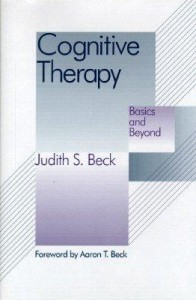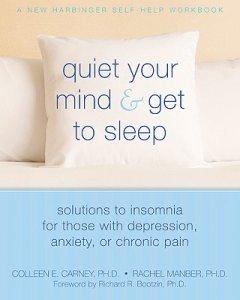Word World
PsychCentral looks at a study about how people think different thoughts when using different languages–Arabic and Hebrew are the testers.
The study found that Arab Israelis’ positive associations with their own people are weaker when they are tested in Hebrew than when they are tested in Arabic.
Mind-Body MD
An interview I did with L.A.-based mind-body doc, David Schechter, MD, is now up at PsychologyToday.com.
When I saw this patient again a few weeks later, her pain had gone from a nine out of ten to a zero to one out of ten. She was making plans for future vacations, hotel beds, school, and other activities she had long denied herself due to pain–all after only two months.
Being 70
NYT on Ringo, Robert Butler, and ageism: Turn 70. Act Your Grandchild’s Age.
“We’re going to make it look like if you’re sick, it’s your own fault; if you’re not having orgasms or running marathons, there’s something wrong with you. We need to think carefully about how to take care of people who are frail. We need to allow people to not feel like failures when they can’t do the things they used to do.”
Why CBT?
 Judith Beck’s debut at the Huffington Post: The How and Why of Cognitive Behavior Therapy.
Judith Beck’s debut at the Huffington Post: The How and Why of Cognitive Behavior Therapy.
[N]ot all psychotherapy is the same. Some modalities have a strong evidence base that demonstrates their effectiveness. Other modalities have never been shown to be effective. Yet they continue to be practiced by psychotherapists who consider an evidence base to be unimportant.
Her collected posts are here (a second went up yesterday).
Trusty Robots
PsychCentral: Robots Help in Study of Trust.
To test the hypothesis, researchers had test subjects interact with the social robot, Nexi, in an attempt to judge her trustworthiness. Unbeknownst to participants, Nexi has been programmed to make gestures while speaking with selected participants — gestures that the team hypothesizes could determine whether or not she’s deemed trustworthy.
Voice Blindness
An NPR portrait of a very rare problem, phonagnosia, or voice blindness:
According to phonagnosia researcher Diana Sidtis, the part of the brain that allows people to distinguish things like age, gender and emotional content in a voice is different from the part of the brain that makes sense of whether or not the voice they’re hearing has “personal relevance.” That’s the part of the brain that’s able to relate to a voice and determine that it’s actually familiar.
Creativity Crisis
Newsweek sounds an alarm re: declining “CQ” scores.
With intelligence, there is a phenomenon called the Flynn effect—each generation, scores go up about 10 points. Enriched environments are making kids smarter. With creativity, a reverse trend has just been identified and is being reported for the first time here: American creativity scores are falling.
Wide Awake
 An NYT review of Wide Awake: A Memoir of Insomnia, by Patricia Morrisroe.
An NYT review of Wide Awake: A Memoir of Insomnia, by Patricia Morrisroe.
Morrisroe interviews an anthropologist who says that in many traditional, non-Western cultures people sleep on light mats, not beds, sometimes in groups around a fire. Instead of what the anthropologist calls our “lie down and die” model, people drift in and out of slumber. Sometimes, they get up to sing or dance for a while…
Knowledge v. Pain
WebMD: Attitude, Knowledge Can Relieve Back Pain.
“For most patients, psychological factors as well as beliefs, attitudes, and health literacy will also come into play,” he says. “We can tell patients to stay active, for example, but if they don’t believe exercise will help or if they fear activity will make their condition worse, they aren’t going to do it.”
CBT for Insomnia
 CBT for insomnia (CBT-I) quickly outlined in an NYT interview. Simple and straightforward enough to invite DIY CBT-I–do it yourself:
CBT for insomnia (CBT-I) quickly outlined in an NYT interview. Simple and straightforward enough to invite DIY CBT-I–do it yourself:
Self-help books offering CBT-I are also available. Two that I really like are“The Insomnia Answer,” by Paul Glovinsky and Art Spielman, and “Quiet Your Mind and Get to Sleep,” by Colleen E. Carney and Rachel Manber.